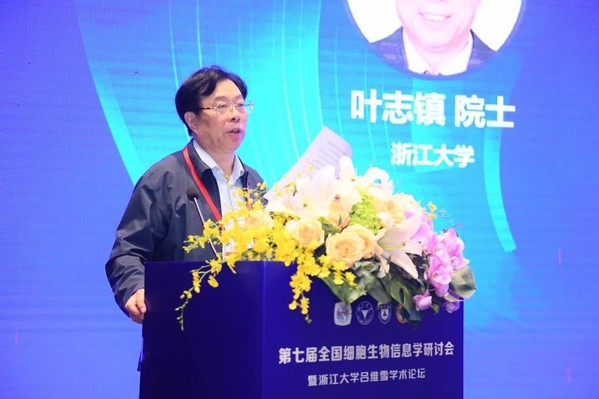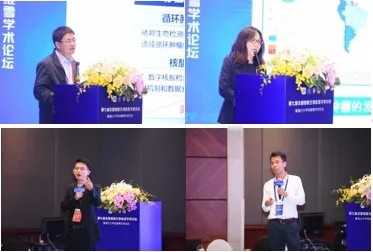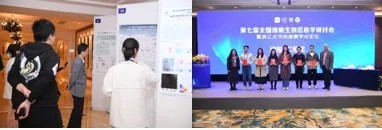From November 13th to 14th, 2024, Zhejiang University's College of Biomedical Engineering & Instrument Science (CBEIS) successfully hosted the 7th National Cell Bioinformatics Symposium in conjunction with the 14th “Lv Weixue Academic Forum” at the Huanglong Hotel in Hangzhou, China. The event was co-organized by the Nanomedicine and Engineering Branch, Biomedical Metrology Branch, and Biomedical Sensing Technology Branch of the Chinese Society of Biomedical Engineering (CSBME).

The symposium, chaired jointly by Academician Ning Gu from Nanjing University, Dean Hong Zhang from Zhejiang University, and Professor Ping Wang, attracted over 40 leading experts and more than 200 professionals from prestigious universities and research institutions worldwide. They engaged in in-depth discussions on cutting-edge research and innovative achievements in cell bioinformatics, biomedical nanotechnology, sensing, and measurement technologies.
Professor Erping Li welcomed attendees on behalf of Zhejiang University's Faculty of Information Technology (FIT), highlighting the latest interdisciplinary research advancements. He emphasized that this conference represents a significant opportunity to promote the integration and development of cell bioinformatics and biomedical engineering.

Professor Xiao’xiang Zheng, CBEIS’s former Dean, provided a comprehensive overview of the school's development. She highlighted significant achievements in academic discipline construction, research outcomes, and talent cultivation. Professor Zheng emphasized that the college has vigorously promoted the interdisciplinary integration of biomedical engineering and instrument science, creating a multi-disciplinary development characteristic. This approach has led to substantial impacts within both academia and industry.

Academician Zhi’zhen Ye followed with remarks on the evolution of the National Cell Bioinformatics Symposium, sharing insights into research accomplishments by Zhejiang University's College of Materials Science and the Wenzhou Institute in the realm of life health. He underscored that as life sciences and information technology converge more deeply, research in cell bioinformatics will play a pivotal role in achieving the nation's major health strategy objectives.

Keynote speakers included prominent figures such as Professors Ning Gu, Jimmy Hsia from Nanyang Technological University (NTU), Xian'en Zhang from Shenzhen Institute of Advanced Technology (SIAT), Yu’bo Fan from Beihang University (BUAA), Zhu’hong Lu from Southeast University (SEU), Chen’zhong Li from the Chinese University of Hong Kong (CUHK), and Mo Yang from the Hong Kong Polytechnic University (PolyU). Their presentations covered a wide range of topics, from muscle cell collective behavior to synthetic biology, biomechanics in medical device design, coral evolution, intelligent biosensor platforms, photonic energy conversion nanosystems, and advancements in neural cell information detection.

The symposium featured not only high-quality keynote addresses but also diverse academic exchange sessions, including parallel sessions, a young scholars forum, and student poster presentations. These activities showcased the latest research progress within the field and recognized outstanding student projects.
In conclusion, the symposium fostered substantial international collaboration and injected new vitality into the integrated development of cell bioinformatics and biomedical engineering. Professor Sui’ren Wan highlighted during the closing ceremony that the meeting exemplified the advanced level of research in cell bioinformatics and provided a crucial platform for communication among attendees. Future research will focus on key areas like cell bioinformatics analysis, intelligent sensors, and precision medical instruments to advance both fundamental and applied research.
